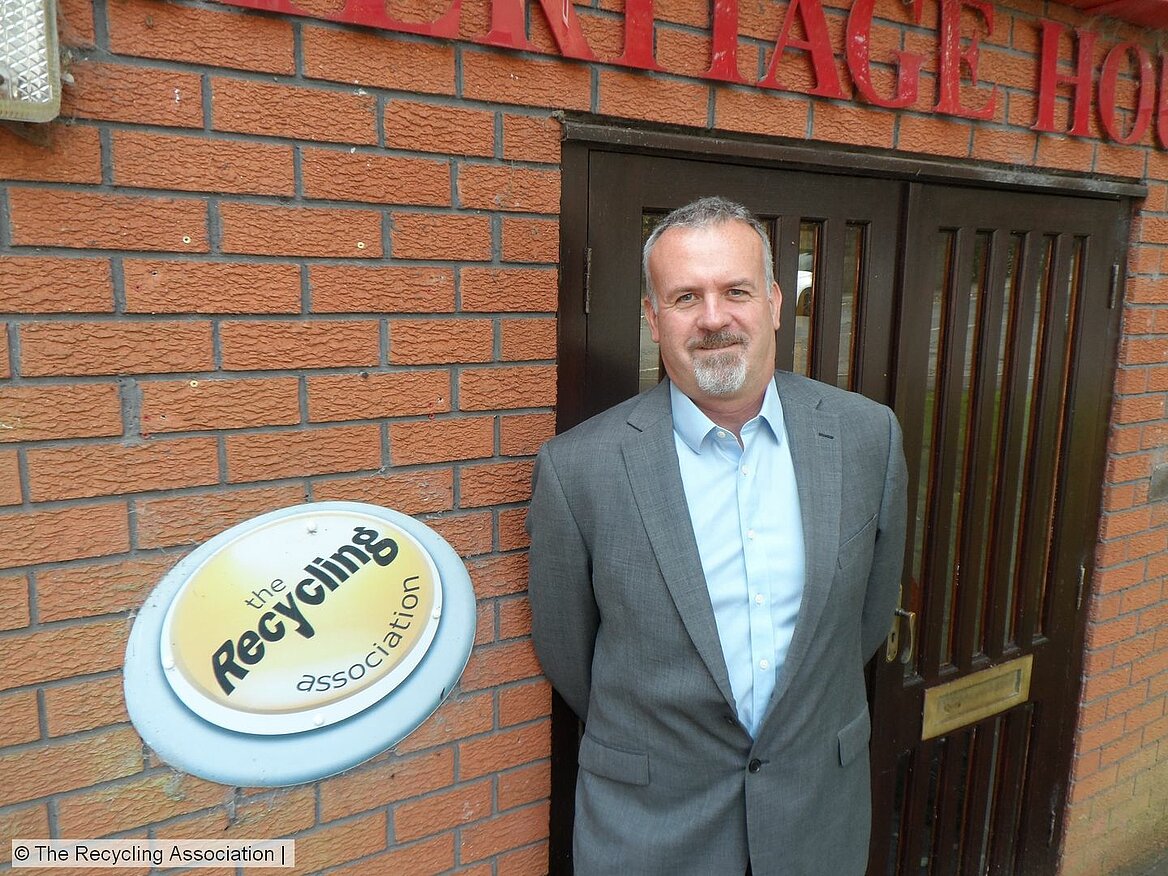The Recycling Association, is supportive of EPR consultations, but raises concerns about some propsales concerning packaging waste from businesses, says Simon Ellin, CEO of The Recycling Association, in an interview with EUWID.
The UK’s Department of Environment, Food and Rural Affairs (Defra) is currently conducting consultations on proposals for a restructuring of the Extended Producer Responsibility (EPR) scheme for packaging waste. The new scheme aims at making businesses responsible for funding the full net costs of managing waste from packaging they place on the market. The current scheme has been in place since 1997 and relies on PRNs (Packaging Recovery Notes), a system of tradable certificates issued by recyclers, to both secure funding for recycling from brand-owners and other obligated companies and to improve the economic viability of recycling.
The new scheme will not only transform the way costs for packaging recycling are distributed, but also how packaging waste collections for both households and businesses will be organised in the future.
In an interview with EUWID, Simon Ellin, CEO of The Recycling Association, pointed out what he thinks are the positive and negative aspects of the proposals that are now up for discussion.
Question: Mr Ellin, what is your general view on the consultations and the Consultation Document?
Mr Ellin: We are generally supportive of the EPR consultation as we think the producer should pay for the cost of collecting, sorting and recycling the packaging that they put on the market in many circumstances. Particularly with household packaging, EPR gives an incentive to those who design and manufacture it to make it easier to recycle. As part of a circular economy, each part in the cycle needs to play its part, and these proposals generally ensure that producers pay their way for the material that ends up in households and businesses.
EUWID: How do you assess the proposals concerning packaging waste from households, and why?
Mr Ellin: For household packaging, the proposals are good as they encourage the collection of high quality recyclate by local authorities and that is paid for by producers. Running alongside this consultation is another on consistency of collections and we welcome the measures in that whereby paper and cardboard should be kept separate from other materials as that will help boost quality.
EUWID: How do you assess the proposals concerning packaging waste from businesses, and why?
Mr Ellin: This area is more problematic as it will add layers of complication, cost and significant potential for fraud into a system that already largely works, and there is a strong argument to suggest that business packaging does not needed to be included in the scope of this consultation. According to statistics in the consultation, 56 per cent of household-like waste from businesses is recycled, while 73 per cent of transit and industrial packaging is recycled. These are much better than household recycling rates, and suggest we just need to get better at recycling these without ripping up the whole system. However, the Government seems keen to include business waste and has given three options on how this might work. If we have to choose an option, it would be Option 1, which is closest to business as usual. We believe though, that this option could be enhanced to include compliance schemes purchasing evidence of recycling of packaging by recyclers. The other two options we have serious concerns about.
EUWID: What aspects are, in your opinion, especially problematic?
Mr Ellin: As mentioned above, Options 2 and 3 give us serious concerns. This is because compliance schemes would take control of the material in these options, which we believe is anti-competitive and could potentially put many of our members out of business. We don’t believe that compliance schemes have the right level of expertise to effectively determine where the material should be sorted, recycled and potentially sold, when instead their talents could be put to better use providing evidence to producers that material has been recycled on their behalf. We also have concerns about proposals that businesses would have to tender to service commercial and industrial zones, rather than individual companies, as we believe this would also be anti-competitive as it would favour generalist, larger companies, rather than specialists. There is a lot that is good in this consultation, but it is essential we don’t rip the heart out of a system that is already working well when it comes to business waste.
EUWID: Mr Ellin, thank you very much for this interview.
The EPR consultation will close at 23:59 on 4 June 2021. The online survey can be accessed under: consult.defra.gov.uk/extended-producer-responsibility/extended-producer-responsibility-for-packaging/

